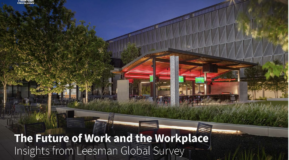It's the holiday season in the US as I'm writing this post and I'm excited that my wallet is spending more time in my pocket. That's not to say I'm playing the role of Scrooge to my family. In fact, it's quite the opposite. My wallet is staying put because of the advances of technology that allow me to use my phone for more purchases than ever before.
Just One Word: Plastic
I remember growing up in a time when personal checks were the currency that we dealt in. I can remember working in retail and having to stamp the back of the paper or see a driver's license to prove identity. As I grew up, credit and debit cards took the place of the paper check as the preferred method of transaction. They were smaller, more reliable, and required significantly less writing.
Fast forward to the modern era and you'll find that everyone has a card or two in their pocket. Checks are a thing of the past. Most places won't take a personal check due to the likelihood of fraud. That's not to say that credit and debit cards are totally immune from fraud. However, the fraud that they are often affected by isn't from the person making the transaction. Instead, the theft of the card number for reuse for nefarious purposes is at an all-time high. We're only four years removed from one of the largest card number thefts in history.
That's why I'm excited about the rise of mobile payments in retail environments. Instead of swiping my card or handing it over to a store clerk to deal with, I can simply tap my phone on a reader or show a QR code that serves the same purpose with much greater security. Because the transaction is tokenized, replay attacks are almost impossible. Because the entire transaction is secured end-to-end, I can take comfort that my card number isn't going to leak at any point along the way. Instead of worrying about theft, I can concentrate on shopping.
Flexibility Is Favored
When you look at the design of a modern department store, everything is based around the cashier area. Everyone is funneled from the aisles to the front to pay for their goods. It creates issues with staffing and with customer satisfaction. Even newer options like self-checkout lanes can't completely reduce the burden of shoppers growing more frustrated that they can't just pay for the things they want.
Companies are experimenting with new ideas like scan-and-go and mobile payments. Each of these uses the shopper's own phone as a payment system to ensure that items are tracked and paid for appropriately. This gives people the flexibility to get what they want to and leave the store whenever they are finished. No more waiting in line behind someone with ten times the number of items in their cart.
The advantages of mobile payments for smaller boutique shops are also huge. You don't have to look any further than the modern Apple Store to see that. Instead of trying to find a desk to pay for your phone or laptop purchase you can instead grab a salesperson walking the floor and pay for your item right there. For accessory items, you can even pay for it through your phone without the need to find someone to run through the transaction. Just utilize the credit card you have on file in the store app and off you go. It's the ultimate in customer satisfaction.
With the rise of new technologies like Bluetooth Low Energy (BLE), beacons, and wayfinding, it's easy to see that the store of the future may not look anything like the department stores of the past. Customers of the future could pull out their phone, type in the item they want, and get directions to the location of that item. They can pull it off the shelf and the BLE tag on the shelf will mark it in their app. Once they've finished their shopping, the app will send a notification for payment as they approach the front door of the store. The customer can just click one button and pay for their entire transaction securely on their way out. The ultimate shopping experience with minimal distraction from the items.
You're probably saying to yourself right now that this rosy future isn't coming any time soon. Except for the technologies that mobile payments are built on today exist everywhere. Companies like Aruba are building wireless infrastructure to support mobile payment terminals. And BLE, wayfinding, and beacons are some of the hottest selling items there are. Meridian allows developers to build apps with the functions that customers want to see in a store app. The future is almost here. The technology is ready. It's just waiting for the right person to put it all together.




